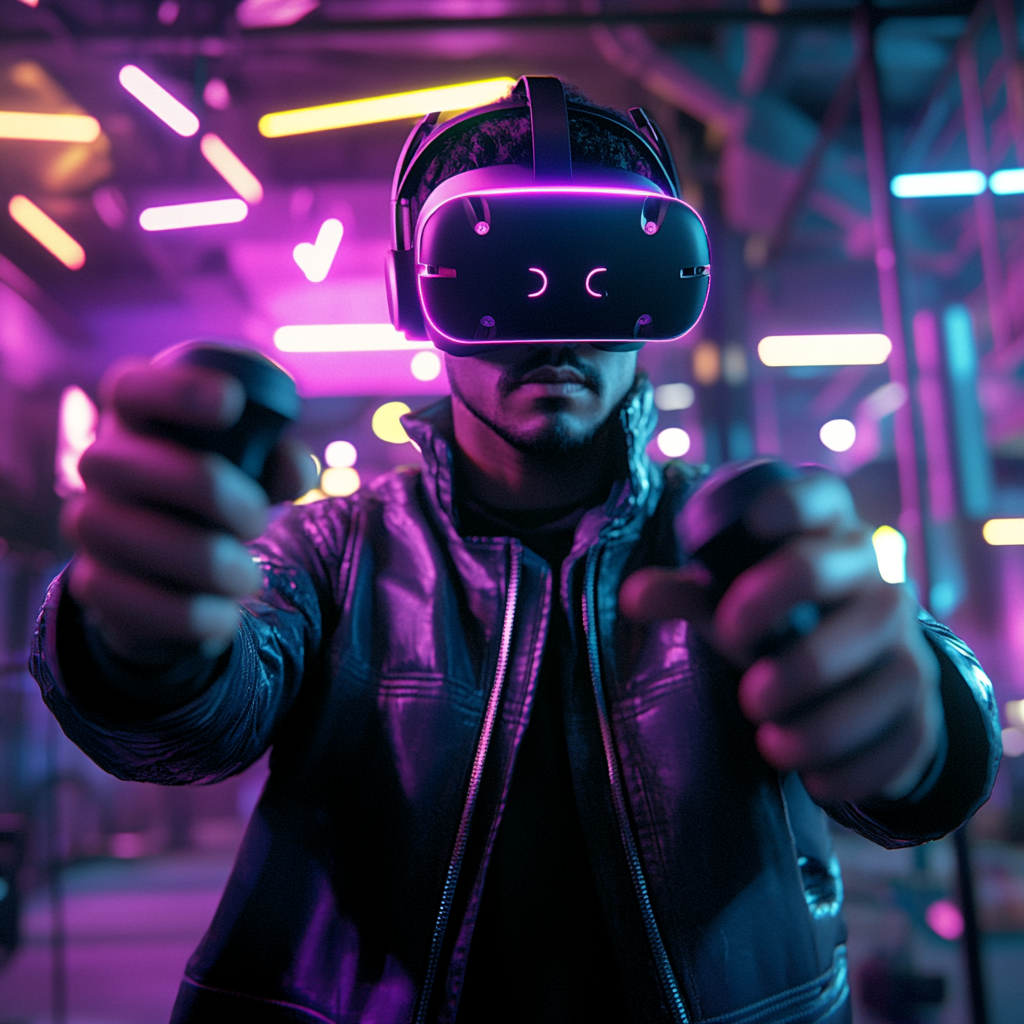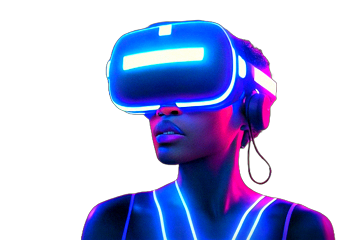Virtual Reality Beyond Gaming
Virtual Reality (VR) has come a long way from being just a futuristic concept in sci-fi movies. The VR technology is now capable of creating highly immersive digital experiences that were once unimaginable. Many first time VR users were blown away by how realistic their immersive experience was despite the quality of the graphics is still far from being photorealistic.
While gaming remains the most well-known application, VR is beginning to make waves in healthcare, education, real estate, and even corporate training. HTC Vive, one of the leading VR brands has also been reported to apply the technology into law enforcement training.
How far will the VR tech go? Are we beginning to step into a futuristic digital era where wearable gadgets and smartphones will be mainstream, while laptops and desktop computers dwindle away?
Well, let's explore how VR is being used in today's world, so we can make more accurate predictions of what is to come in the near future.
- Healthcare:
Some doctors and medical students are using VR simulations to practice surgeries without risking the lives of actual patients. VR therapy has also proven to be fairly effective in helping patients manage anxiety, PTSD, and phobias. - Education and Training:
Sitting through a long lecture is not going to cut it anymore in the digital era. Our attention span is so much shorter compared to the previous generations because we have become so accustomed to quick Internet surfing and social media scrolling. Thus, educational contents delivered in VR format can make the lessons so much more immersive, interactive and engaging. - Virtual Tourism and E-Commerce:
VR is already on the verge of revolutionizing industries such as tourism and e-commerce. Travelers do not necessarily need to be physically present in the actual location to enjoy the environment as VR can virtually transport us to the location. As VR experience becomes more immersive and realistic, a new profitable market segment of VR travelers may emerge. VR is also likely to evolve as a medium that can assist consumers in making more informed purchasing decisions. - Corporate Training:
VR simulations developed for the purpose of training is becoming popular with companies because it reduce risks and costs compared to more conventional training methods like orientation or on-the-job training. Employees can practice skills in a safe and controlled virtual environment, which is especially useful for hazardous jobs and VR training has also proven to be effective for soft skills training.

What can we Expect of VR in the Near Future?
VR has seen significant growth in adoption and interest in the last few years and this trend is poised to continue in the coming years.
Enthusiasm around augmented reality smart glasses recently sparked a new trend for spatial computing. This could build up the momentum for VR devices manufacturers to swiftly push out new breakthroughs. For example:
- Improved Hardware Design:
The cumbersome VR headset is one of the factors why tech consumers are hesitant on using VR as a primary device. This shortcoming is expected to improve as we are now beginning to see lighter VR devices like the HTC Vive XR Elite which weighs only about 270g without the battery. - Realistic AI-Generated VR Contents:
In such a short span of time, Artificial Intelligence (AI) has made it so much simpler and quicker to generate digital images and videos. Likewise, AI is expected to revolutionize the 3D graphics industry too in the very near future. When this happens, more variety of VR contents can be produced quickly, so as more consumers adopt VR, prices for VR contents and devices should also become more affordable. - Focus on More Immersive Experience
A key selling point for VR has always been its ability to immerse the user in a very realistic virtual environment. This is one of the reasons why VR devices manufacturers are constantly pushing the boundaries that would enhance the VR experience. If you wish to enjoy a more natural VR experience, you can now buy VR devices that can track your hands and eyes. Some VR devices are also equipped with haptic feedback to simulate our sense of touch.

OPPORTUNITIES IN VR METAVERSE AWAITS YOU
Virtual Reality (VR) is a key technology of the metaverse, so as VR grows, we can also expect the metaverse to expand and gradually integrate into mainstream media.
Why not then explore some metaverse opportunities that for today's market?
EXPLORE METAVERSE OPPORTUNITIES

